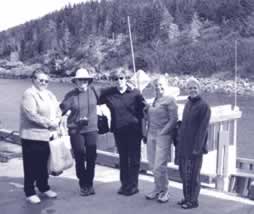Reach and Frequency
Literacies comes out twice a year, in
spring and fall.
Our readers include people interested in adult literacy research and practice.
They may have one or more roles including teaching, research, professional
development, consulting, networking or policy development.
They may work in other fields that connect in some way to adult literacy.
The print journal is distributed to over 3,000
readers across Canada,
the USA, the UK, Australia and New Zealand.
Here are some examples of who is reading Literacies:
The website receives
an average of 1,000 hits per month our first
web forum attracted over 60 participants and the numbers
continue to grow with each session we
run. The forum participants use articles posted on the web site
to inform the discussion.
Our survey of forum participants told us
that our readers:
- are committed to professional
development;
- see the value of research
in practice;
- see the value of online communication;
and
- use internet as professional
development resource.
Eighty-five
percent of those surveyed said that Literacies and the
web forum helps them to meet their professional
development goals, and here is how:
I would not have been able to participate
in this level of dialogue in any
other forum I can think of. Even
at conferences, time runs out as
you get in the meat of things. I
like being able to ruminate over
the ideas and not HAVE to respond.
It continued and deepened the level
of understanding of the issue.
I appreciated hearing analyses from
people who I think are well informed
and capable of analyzing and using
data.
By putting me in touch with others
working in the field. By allowing
me to know what others are doing.
And
here is what they said about participating in the forum:
This [discussion] was accessible
and I learned some things.
The great job
the facilitators did in summarizing
key concepts. I
will return to those archives if
needed.
The number of active diverse participants
who thoughtfully took time to share
on line.
Opportunity to hear different points
of view that must be considered.
The contributions were very thought
provoking and enormously useful.
Confirmation that the issues are
complex, there is no one solution
and that there are many committed
and passionate people out there!



